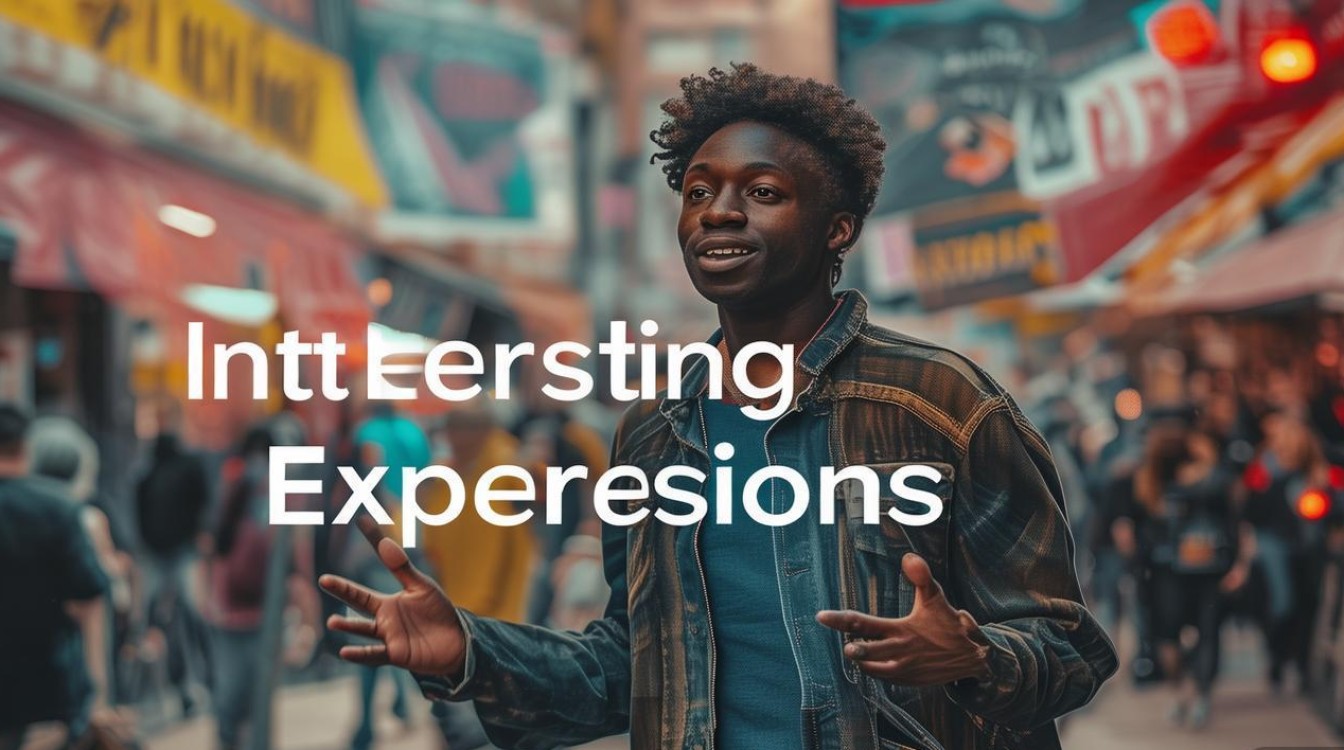口语表达中的“interesting”:如何地道使用这个词
在日常交流中,“interesting”是一个高频词,但它的含义远不止“有趣”这么简单,掌握这个词在不同语境下的用法,能让你的口语表达更地道、更生动,本文将深入探讨“interesting”的多种用法、搭配技巧以及常见误区,帮助你更好地运用这个词。

“interesting”的基本含义与语境差异
“interesting”源自动词“interest”,表示“引起兴趣的”,但在实际使用中,它的含义会根据语境和语调发生变化。
-
正面含义:表示有趣、吸引人
当说话者真心觉得某事物有趣时,“interesting”通常带有积极的色彩。- “I found that book really interesting.”(我觉得那本书非常有趣。)
- “She has an interesting perspective on this topic.”(她对这个话题有有趣的见解。)
-
中性或负面含义:表示奇怪或复杂
在某些情况下,“interesting”可以委婉地表达“奇怪”“复杂”甚至“令人困惑”。- “His explanation was... interesting.”(他的解释……挺有意思的。)——此处可能暗示解释令人费解。
- “The weather today is interesting.”(今天的天气真有意思。)——可能指天气多变或异常。
如何通过语调判断“interesting”的真实含义
语调是理解“interesting”隐含意义的关键,以下是一些常见场景:
| 语调特点 | 隐含含义 | 示例 |
|---|---|---|
| 上扬、热情 | 真正觉得有趣 | “Wow, that’s interesting!”(哇,太有趣了!) |
| 平淡、拖长 | 委婉表达不满或困惑 | “Oh, that’s... interesting.”(哦,挺有意思的。) |
| 重音放在“ter”上 | 带有讽刺或无奈 | “Well, that’s in-ter-es-ting.”(嗯,可真够“有趣”的。) |
与“interesting”搭配的实用表达
掌握固定搭配能让你的口语更自然,以下是常见搭配:
-
“quite/somewhat/pretty interesting”
- “The movie was quite interesting.”(那部电影相当有趣。)
- “His response was somewhat interesting.”(他的回答有点意思。)
-
“more/less interesting”
- “This topic is more interesting than I expected.”(这个话题比我预期的更有趣。)
- “The lecture was less interesting than I thought.”(讲座没有我想象的有趣。)
-
“find something interesting”
“I find history really interesting.”(我觉得历史非常有趣。)
-
“it’s interesting that...”
“It’s interesting that he changed his mind.”(他改变主意了,真有意思。)
避免误用:这些情况慎用“interesting”
虽然“interesting”用途广泛,但以下情况可能需要更精确的表达:
-
表达“无聊”时
错误:“This is interesting.”(实际想说“无聊”)
正确:“This is boring/dull.” -
赞美他人时
单纯说“interesting”可能显得敷衍。- 想表达“你的演讲很精彩”:可以说“Your presentation was fascinating!”
-
讨论严肃话题时
如果某事物令人不安或严肃,避免用“interesting”轻描淡写。- 错误:“His accident was interesting.”
- 正确:“His accident was concerning.”
进阶技巧:用“interesting”引出观点
在讨论中,“interesting”可以作为引子,表达自己的看法。
- “Interesting point. However, I think we should consider another angle.”(有趣的观点,我认为我们应该考虑另一个角度。)
- “That’s an interesting way to look at it. From my perspective, it’s different.”(这是一种有趣的看法,在我看来,情况不同。)
相关问答FAQs
Q1:为什么有时别人说“interesting”时,感觉像是在敷衍?
A1:这可能是因为“interesting”在口语中有时被用作“万能词”,尤其是在不想直接表达负面情绪时,当你的建议被对方用“interesting”回应时,可能意味着他们并不完全认同,但出于礼貌没有直接反驳,可以通过追问进一步确认对方的真实想法,“Could you elaborate on why you find it interesting?”
Q2:如何区分“interesting”和“fascinating”的用法?
A2:“Interesting”和“fascinating”都表示“有趣”,但程度不同。“Interesting”是中性词,适用于一般有趣的事物;而“fascinating”强调“极富吸引力”或“令人着迷”,语气更强。
- “The documentary was interesting.”(纪录片挺有趣的。)
- “The documentary was fascinating.”(那部纪录片太迷人了!)











